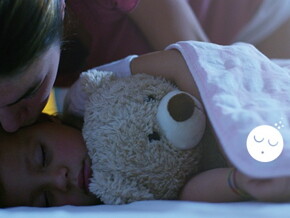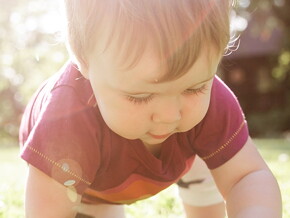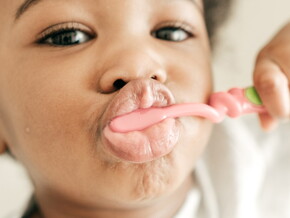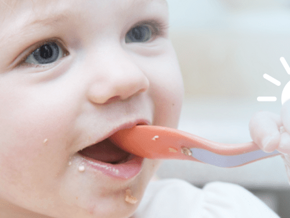
Sleep styles can vary greatly across cultures, affecting where, how, and what time parents put their little ones to bed, as well as the bedtime routines they follow. The good news is that even with the different habits, many toddlers are generally getting the recommended 11-14 hours of total sleep they need from daytime naps and a full night's sleep.
Sleep is vital for your toddler’s healthy growth and development—it’s a crucial time when their body rests and recharges. Speak to your healthcare provider if your concerned about how much sleep your toddler is getting.
Getting ready for bed
Research has shown that a consistent bedtime routine is one of the most important things you can do to help your toddler doze off. If you don't have one in place yet, it's not too late. A recent study that included mothers and their young children, showed improvements in toddler sleep habits after just three nights of following a specific bedtime routine, which included a warm bath, massage, and quiet-time activities. However you’re choosing to settle your toddler before bedtime, make sure you do the same thing every night so they know what to expect.
Be sure that screen time is not part of your toddler's bedtime routine. Watching TV or playing with phones or tablets before bed can lead to decreased sleep. In fact, a recent study found that every hour of touchscreen use was associated with 15 minutes less overall sleep in toddlers.
Sleep styles revealed
Find out how toddlers are sleeping and preparing for bed around the globe. Several studies were conducted exploring the sleep patterns of babies in different countries, revealing some interesting findings. You might be inspired to try something new. After all, what unites every parent—wherever they come from—is their wish for a happy, healthy, and well-rested toddler.
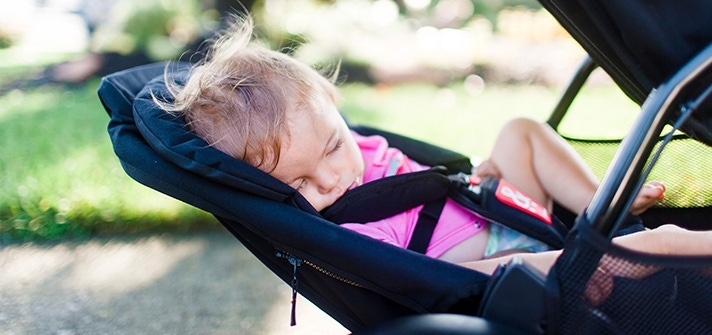
1. Daytime naps
Research on toddler naps shows:
- Toddlers in Greece sleep for nine hours a night and three hours during the day.
- Almost all 18-month-olds in England have daytime naps, meaning they’re getting a daily average of almost 13 hours of sleep.
- Toddlers in South Korea have the fewest naps. Yet they still accrue just under 12 hours of sleep in total, indicating they’re within the target of 11-14 hours a day.
Could it work for you? Naps can give growing toddlers the opportunity to recharge during the day so they’re ready for more activities. It also provides you with some precious moments to get things done!

2. Falling asleep independently
Studies on how toddlers fall asleep found:
- Parents in Australia and New Zealand are highly likely to encourage independence and self-soothing. Toddlers get an average of 13 hours of total sleep each day, despite 30% of parents believing their child has a sleep problem.
- In Hong Kong, children who fall asleep by themselves sleep for longer and wake up less.
Could it work for you? Teaching your toddler to fall asleep independently means, in time, she’ll be able to self-soothe and resettle herself if she wakes up in the night. You should hopefully be able to get a bit more rest too.

3. Regular nightly routine
Research on following bedtime routines showed:
• Almost 40% of children aged one to four follow the same bedtime routine every night in Belgium.
• In the Netherlands, close to 50% of one- to two-year-olds have a nightly bedtime routine.
Could it work for you? There’s evidence to show that following a regular bedtime routine leads to toddlers getting more sleep. Activities like bathtime and reading a story before bed are also fun ways to bond with your little one.
Sources
Ahn YM, Williamson AA, Seo H, et al. Sleep patterns among South Korean infants and toddlers: Global comparison. J Korean Med Sci 2016; 31:261-9.
Blair PS, Humphreys JS, Gringras P, et al. Childhood sleep duration and associated demographic characteristics in an English cohort. Sleep 2012; 35(3):353-60.
Cheung CHM, Bedford R, Saez De Urabain IR, et al. Daily touchscreen use in infants and toddlers is associated with reduced sleep and delayed sleep onset. Scientific Reports 2017; DOI: 10.1038/srep46104
Dattilo AM, Reidy, KC, Uesugi K. Modifiable risk and protective factors for healthy growth among infants and toddlers: Development and application of a global survey [abstract]. Nutrition and Growth Meeting, March 1-3, 2018, Paris, France.
Hirshkowitz M, Whiton K, Albert SM, et al. National Sleep Foundation’s sleep time duration recommendations: methodology and results summary. Sleep Health 2015; 1(1):40-43.
Mindell JA, Leichman ES, Lee C, et al. Implementation of a nightly bedtime routine: How quickly do things improve? Infant Behav Dev 2017; 49:220-27.
Mindell JA, Lee C, Sadeh A. Young children and maternal sleep in the Middle East. Sleep Med 2017; 32:75-82.
Mindell JA, Sadeh A, Wiegand B, et al. Cross-cultural differences in infant and toddler sleep. Sleep Med 2010; 11(3):274-80.
Netsi E, Santos IS, Stein A, et al. A different rhythm of life: sleep patterns in the first 4 years of life and associated sociodemographic characteristics in a large Brazilian birth cohort. Sleep Med 2017; 37:77-87.
Teng A, Bartle A, Sadeh A, et al. Infant and toddler sleep in Australia and New Zealand. J Pediatr Child Health 2012; 48(3):268-73.
Yu X, Sadeh A, Lam HS, et al. Parental behaviors and sleep/wake patterns of infants and toddlers in Hong Kong, China. World J Pediatr 2017; 13(5):496-502.



